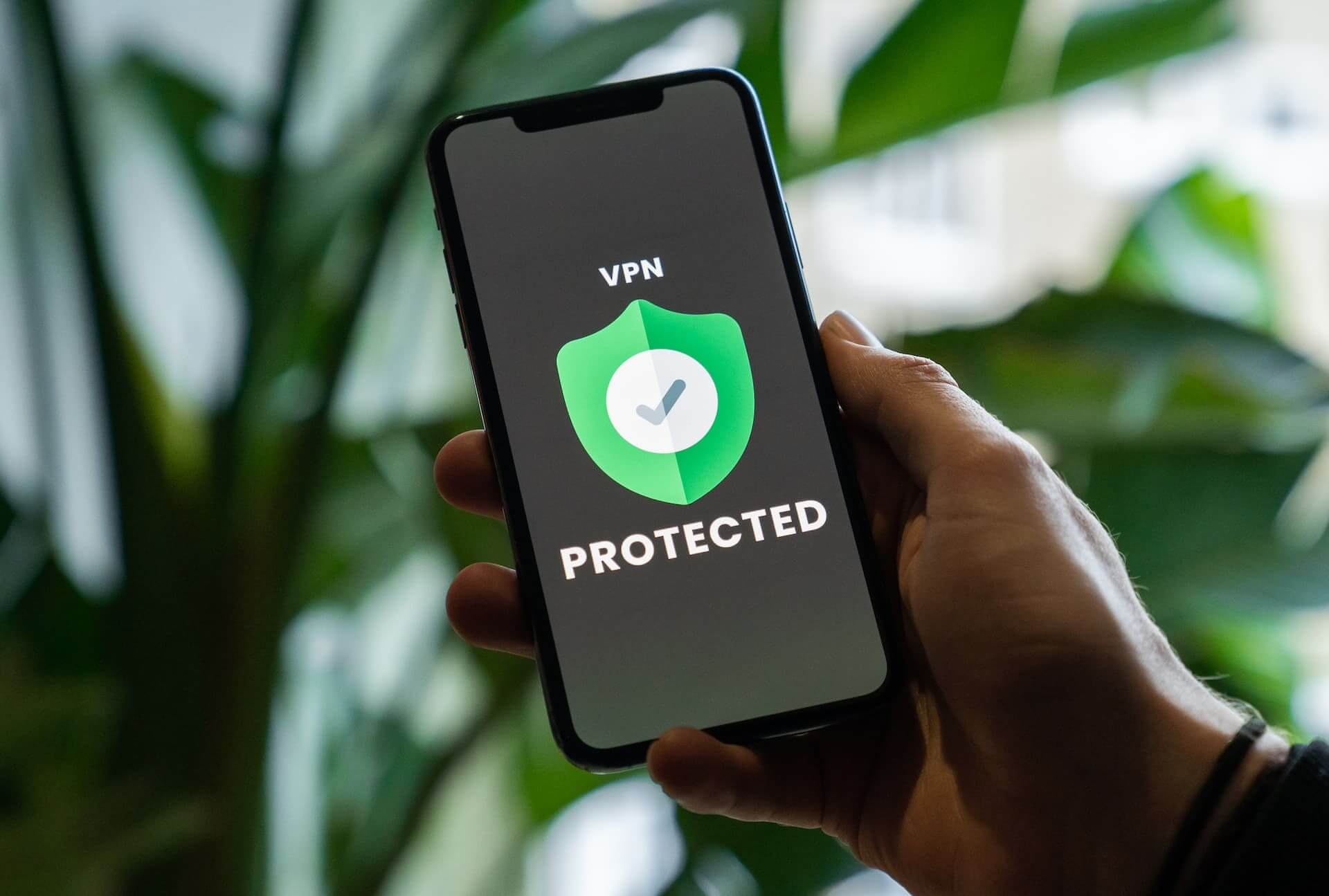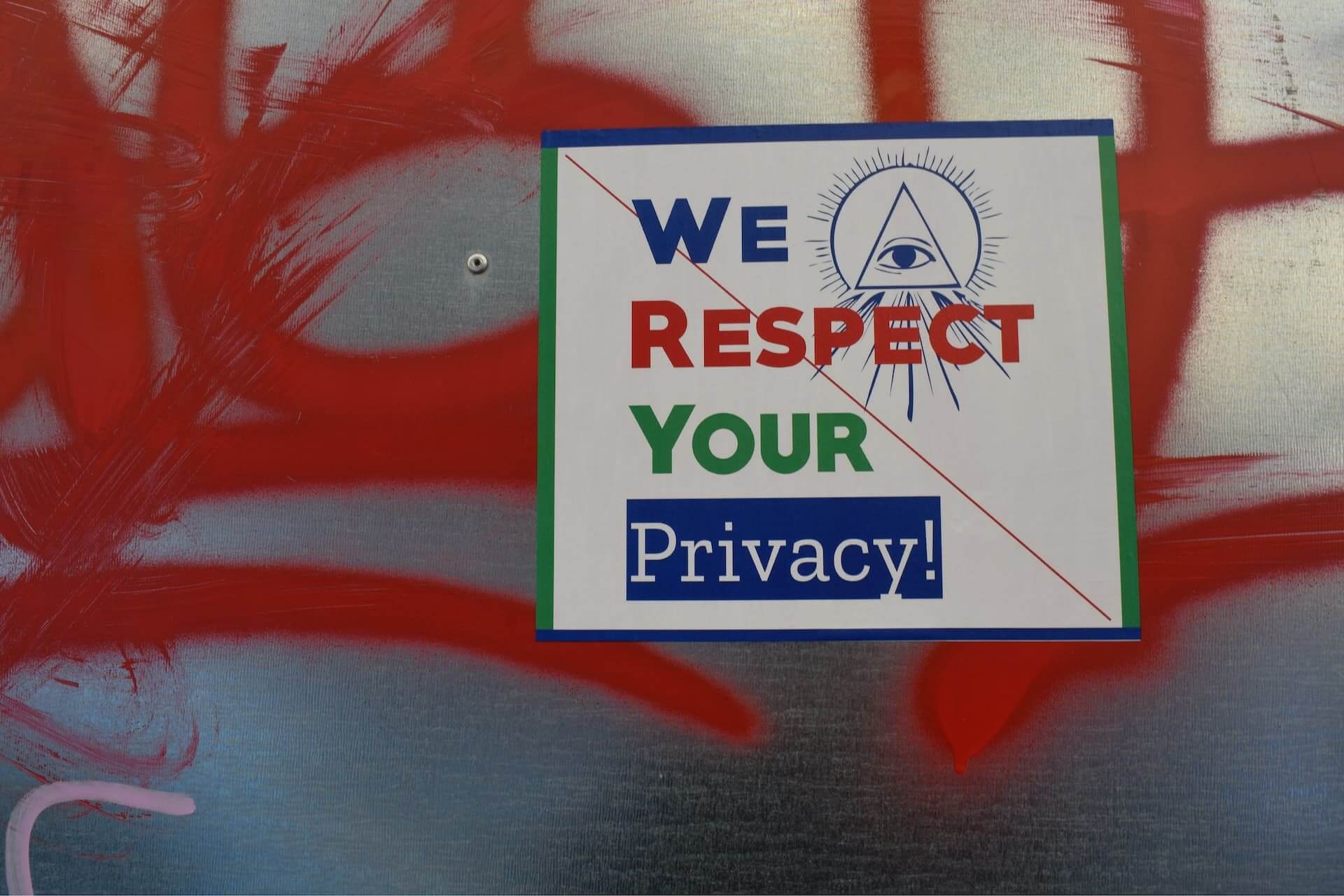4 Ways to Protect Your Privacy when Working Online
If you're mindful of your privacy online when you're browsing for personal use, then you should take at least some precautions when you use the Internet for work.
Written by human for humans
There are many ways websites track you online, collecting data ranging from your IP address to your browser's unique fingerprint. Often, there's at least a little overlap when it comes to personal or work use. Maybe you log in to your work email from your personal computer, or you might be using the same mobile device for work and play. If you're a freelancer, you might just have one computer for everything.
It's not too difficult for trackers to figure out that the different bits of collected data belong to a single user, so it makes sense to use privacy protection wherever you can.
Here are four ways to increase your online privacy protection at work:
1. Use your company VPN or set up your own
Virtual Private Networks are often touted as a one-stop solution that protects your privacy, but if you've been paying attention, you know that's not exactly true. We recently discussed how VPNs are not designed with anonymity in mind and how difficult it is for consumers to verify whether or not a VPN provider is logging their data.

Having said that, a VPN does offer protection in the sense that it conceals your data transfers from third parties using an encrypted, virtual tunnel. It might make sense for your company to provide an internal VPN hosted on one of its servers - perhaps it already does. If you're self-employed, think about hosting your own home or office VPN.
2. Use a privacy-focused browser
In 2023, it's quite likely that you'll need to use a browser for at least part of your desk job work duties. If that's the case and you have the option to choose which browser you're using, then make sure you select one that comes with better privacy protection. Here are three of our recommendations:
- Brave browser is a privacy-oriented browser that comes with built-in ad-blocking and tracking protection. Brave includes advanced privacy features like fingerprint blocking and an optional VPN for mobile users.
- Mozilla Firefox is a long-standing browser that is still persevering as an independent, non-profit project. Firefox comes with many powerful privacy options, including blocking fingerprinting for known third-party trackers.
-
Vivaldi is a versatile browser created by ex-Opera people that has its own ad-blocker and tracking protection. Vivaldi offers an unique and customizable UI with innovative features like parallel page viewing and tab management.
Note: While all listed browsers offer a degree of fingerprint blocking, you might want to use different browsers for work and personal use.
3. Choose privacy-focused software alternatives (when you can)
Not all software is created equal, especially when it comes to privacy. This has become more of an issue over the past decade, during which we've seen a trend of moving towards browser-based and always-online software.
In the past, you would install all of your programs on your computer, and they would generally work without an internet connection. Your software would go online as needed - for example, in Outlook Express, your written emails would wait in the Outbox until you clicked on the Send/Receive button, which would tell the software to connect to the server.
To be sure, the way we work and collaborate within our teams has changed since then. Being perpetually connected allows us to use collaborative tools to manage tasks and communicate in real time, which does have value. Browser-based software takes a load off IT personnel because it just works - no installation or complicated setup, just log in and you're good to go.

Unfortunately, there are many software companies that take advantage of this to aggressively track users and collect their data. While admittedly not necessarily as egregious at collecting personal data as e-commmerce websites, software-as-a-service invades your privacy in other creepy ways: for example, they can track your mouse movements and even make screenshots of your browser window.
This is done in the name of "improving the product and its user experience," but as a digital marketer, let me tell you - there are other ways to gather user insight data that don't include unknowingly tracking them and sending their data to third parties with questionable motives. Because, let's be honest - cookie notices are a joke.
So, how to fight this? If you can, choose software that doesn't track you, or at least tracks less than what the default software does. We covered a few of our favourite productivity apps of 2022 in a previous blog post, so check that one out if you need some ideas. Needless to say, at Koofr, we are committed to never tracking our users and you can rest assured that this will not change.
You may not always have the option to choose an alternative, especially in cases where teams rely on certain software solutions and their specific features to collaborate. It can be hard to get a team to switch to something else if it also means altering processes and work habits. However, if your team is in the market for a new tool, don't be shy - advocate for tools with higher privacy standards.
4. Don't log in to your personal social media accounts on your work computer
Depending on your job description, you may or may not be able to stay logged out of social media on your work computer. Especially in marketing, the lines between personal and professional can often be blurred.
It should go without saying that logging into social media lets pixel trackers on websites you visit while you work know who you are. You might not always be able to block trackers if your work has to do with the web, so try creating an "air gap" by staying logged out of social media.
![]()
Sometimes, you just can't get around it. If you're doing things like social selling or running ads for your company, you'll need to log in to at least some of your social media. In some cases, you can get around that by using social media management software that lets you manage permissions for users indirectly. Smaller companies often don't have the budget for that, so you might be stuck doing things the old way. In any case, we recommend using a separate browser, or browser user, for these things.
If you're a freelancer or occasionally work from home, you might be using your personal computer to do work-related things. In that case, we'll reiterate our advice to use separate browsers for work and personal use. A separate browser works almost as well as a separate computer when it comes to online tracking, since cookies and fingerprinting are limited to a given browser.
BONUS: Avoid bossware
If you're working from home on a computer that was shipped to you by your employer, the device might have been fitted with employee monitoring/surveillance software, or bossware. Over two-thirds of North American employers with at least 500 employees utilize some form of employee monitoring software, says Wall Street Journal.

The term bossware shares a lot of tools with other, more nefarious types of software, like spyware and malware. The tools have been around for decades, but they were never as widespread as they are today. Bossware might include tracking your keystrokes or mouse movements, making screenshots, monitoring in-app activity, reading internal communication (remember, there is no such thing as a private channel on Slack), and even using the built-in camera to capture images or video.
Unfortunately, in most cases, these programs are legal, even if their ethics can be questionable at best. Thankfully, in Europe, we have stricter privacy laws, but some employers will still choose the "ask for forgiveness, not permission" route. Many employees see bossware as a severe invasion of privacy, so naturally, workarounds for certain bossware tools have been found - some, like mouse jigglers, have even been marketed successfully, both in software and hardware form. Pictured: a mouse jiggler in human form.

In the end, like other invasive software, bossware exists in a perpetual cat-and-mouse game: employers implement a new monitoring tool, employees learn to evade it, and the cycle repeats. We can't really give any advice as to how to do this, because getting caught using a bossware workaround sure isn't going to win you any favours with your manager, and there's a real possibility of serious consequences. Our pro tip is this: consider asking about employee monitoring when you're interviewing for a new job. If you don't like what you hear, then just keep looking.
Do you have any other tips for privacy protection in the digital workplace? Join our community on Reddit and share your thoughts!


